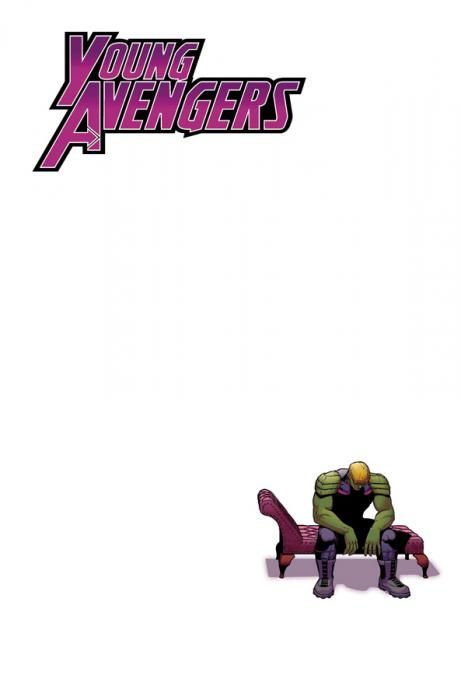"Young Avengers" #9 by Kieron Gillen and Jamie McKelvie continues the series' trend of being one of Marvel's most distinctive titles. From its sensibilities to its subject matter, this is a book that attempts to take the tropes and metaphors of teen superheroes and apply them to a modern audience. In that, it's a complete success, and any other weaknesses are easily forgiven as a result.
Gillen and McKelvie's strongest work comes through in the moments of inter-character drama and development, whether that's a multi-page breakup sequence or a small glance occupying a single panel. This is a comic where feelings matter, so it's important to have a artist whose synchronicity with the writer allows them to convey such nuance. It's hard to imagine any other team executing this story in this way, and like "Hawkeye" or "Daredevil," that's an indicator of its greatness.
While the execution can't be faulted, one suspects it's easier for readers to dislike certain developments in the story. This issue in particular flips back and forth between inducing moments of fist-pumping triumph and stabbing its readers directly in the heart. For those that don't like a book to jerk them around, "Young Avengers" isn't one to read, because by the end of each issue, it's impossible to know whether to love or hate just happened. No-one expects being a teen superhero to be easy, but being a reader of "Young Avengers" sometimes feels just as harrowing an experience.
The dual-cliffhangers of issue #8 were some of the series' most surprising moments to date, and the follow-through on them doesn't disappoint. The relationship between Billy and Teddy has been changing ever since issue #1, and this marks a major turning point for them both which pays off months of setup. The reappearance of Leah (from Gillen's previous series, "Journey into Mystery") initially seems odd, but makes perfect sense by the final page, in a scene "JiM" readers certainly won't want to miss.
The only area where the story seems weak is in the choice of villain. The cast are so wrapped up in their own lives that there seems to be very little room for Mother to actually exert any influence on what's happening, certainly not directly. The threat seems a little too abstract for a superhero title -- not because Mother is a villain they can't seem to beat by punching, but because it's hard to remember from issue to issue what this entity wants and why it wants it.
Still, that's the sort of thing that'll read better in the trade, and even if the villain is weird there's no shortage of tumult in the lives of the team. "Young Avengers" remains a book with a strong sense of what it's doing and where it's going. If you want to know what a modern superhero book is, look no further.

